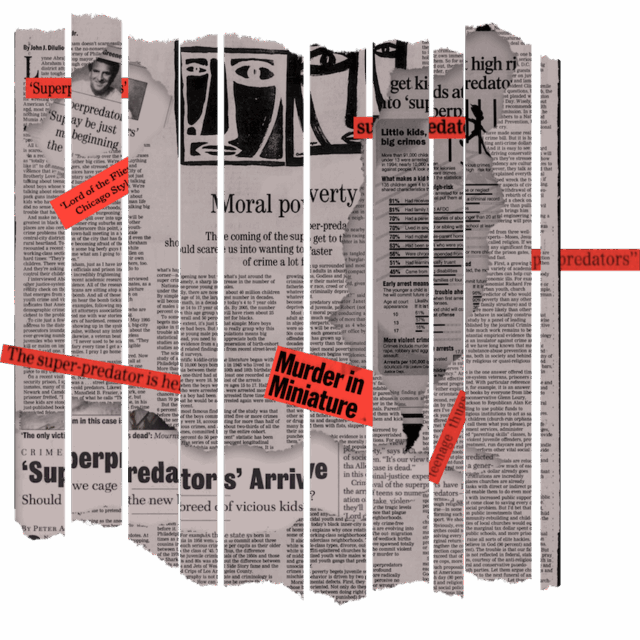The Marshall Project, November 2020
The epithet is a quarter-century old, but it still has sting: “He called them superpredators,” Donald Trump insisted in his final debate with Joe Biden. “He said that, he said it. Superpredators.”
“I never, ever said what he accused me of saying,” Biden protested. While there is no record of Biden using the phrase, much of the harsh anti-crime legislation embraced by both parties in the 1990s continues to be a hot-button issue to this day. From the moment the term was born, 25 years ago this month, “superpredator” had a game-changing potency, derived in part from the avalanche of media coverage that began almost immediately.
“It was a word that was constantly in my orbit,” said Steve Drizin, a Chicago lawyer who defended teenagers in the 1990s. “It had a profound effect on the way in which judges and prosecutors viewed my clients.”
An academic named John J. DiIulio Jr. coined the term for a November 1995 cover story in The Weekly Standard, a brand-new magazine of conservative political opinion that hit pay dirt with the provocative coverline, “The Coming of the Super-Predators.”
Then a young professor at Princeton University, DiIulio was extrapolating from a study of Philadelphia boys that calculated that 6 percent of them accounted for more than half the serious crimes committed by the whole cohort. He blamed these chronic offenders on “moral poverty … the poverty of being without loving, capable, responsible adults who teach you right from wrong.”
DiIulio warned that by the year 2000 an additional 30,000 young “murderers, rapists, and muggers” would be roaming America’s streets, sowing mayhem. “They place zero value on the lives of their victims, whom they reflexively dehumanize as just so much worthless ‘white trash,’” he wrote.
But who was doing the dehumanizing? Just a few years before, the news media had introduced the terms “wilding” and “wolf pack” to the national vocabulary, to describe five teenagers—four Black and one Hispanic—who were convicted and later exonerated of the rape of a woman in New York’s Central Park.




